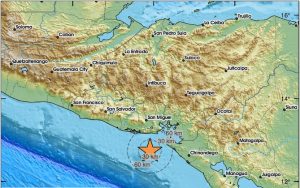UN Secretary-General Antonio Guterres cautioned on World Tsunami Awareness Day 2021 that rising sea levels caused by the climate crisis would aggravate the devastating power of tsunamis. “On World Tsunami Awareness Day, we call on countries, international bodies, and civil society to increase understanding about the threat, and share innovative approaches to reduce risks,” he said in his message.
“We must limit (global) warming to 1.5 degrees over pre-industrial averages and invest at scale in the resilience of coastal communities,” he further said. “Science and international cooperation — as well as preparedness and early action — must be at the heart of our efforts to save lives from tsunamis and other hazards,” he added.
Also Read | Japan 10 years later: 2011 disaster by the numbers
The United Nations (UN) declared November 5 as World Tsunami Awareness Day in December 2015 to call on “countries, international bodies and civil society to raise awareness about the natural disaster and share innovative approaches to risk reduction.”
World Tsunami Awareness Day was created by Japan, which has developed significant expertise in tsunami early warning and public response over the years as a result of the country’s “repeated, bitter experience” with the calamity.
“By the year 2030, an estimated 50% of the world’s population will live in coastal areas exposed to flooding, storms and tsunamis. Scaling up international cooperation to developing countries will help ensure that 100% of communities at risk of a tsunami are prepared for and resilient to tsunamis by 2030,” the UN said.
While the UN stated that tsunamis are rare events, it also claimed that in the last 100 years, there have been 58 incidents of the natural disaster, with 260,000 people killed, or 4,600 deaths per disaster.
The tsunami in the Indian Ocean in December 2004 was the deadliest on record. According to UN estimates, 227,000 people died in 14 countries bordering the ocean as a result of the disaster. During the 2004 tsunami, India, Indonesia, Sri Lanka, and Thailand were among the worst-affected countries.
Earthquakes, landslides, volcanic eruptions, and extraterrestrial collisions are among the major causes of tsunamis, according to the UN. Volcanic eruptions were “relatively infrequent” occurrences, whereas extraterrestrial collisions were “extremely rare,” the UN stated.






